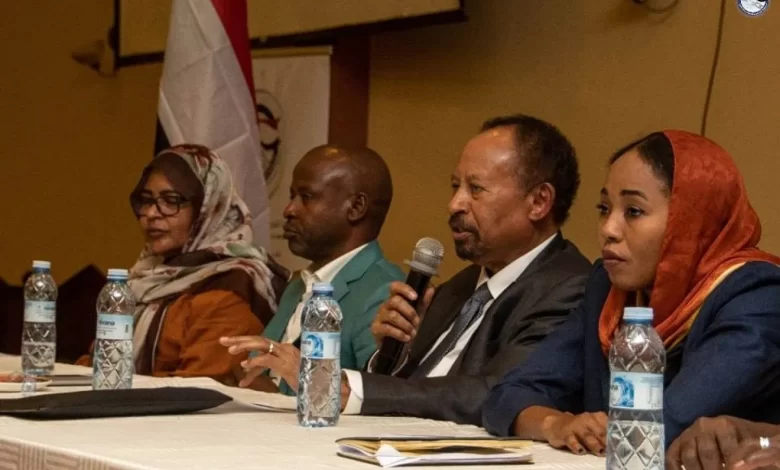Disputes Within “Taqaddum”: A Split Looms Over the Coordination Body

Sudan Events – Agencies
Despite the Coordination of Democratic Civil Forces (“Taqaddum”) pledging to sever ties with the group advocating for the formation of an exiled government allied with the Rapid Support Forces (RSF), tensions within the anti-war political alliance remain high. Each faction appears eager to take its own path, and sources indicate deep-seated disagreements over the ownership of the coalition’s name itself.
The disputes began surfacing when the proposal to establish an exiled government was brought forward by “Taqaddum,” coinciding with a conference held in Entebbe, Uganda, in early December 2024. Internal voices opposed the proposal, arguing that the priority should be ending the war.
In an official statement on Thursday, January 30, 2025, “Taqaddum” announced, following a series of disputes over the exiled government issue, that it was amicably severing ties with the group supporting the proposal. The following day, Khalid Omar Yousif, Vice President of the Sudanese Congress Party and a leading figure in “Taqaddum,” reiterated that the priority for those opposing the exiled government plan is to stop the war, seek a third path, and form a broad civilian front.
Social Implications
Political parties, trade unions, and resistance committees within “Taqaddum” have been the main opponents of the exiled government proposal. The visible affiliations between the faction supporting the government idea and the RSF have become apparent through statements by Suleiman Sandal, a leading member of “Taqaddum,” who has continuously praised the RSF leader while simultaneously attacking the government.
Political analyst Musab Abdullah told Ultra Sudan that the split between the two factions represents a clear rupture within “Taqaddum.” He also noted that this crisis highlights the opposition of political parties, unions, and civil society within “Taqaddum” to the exiled government plan, as they view it as a proxy administration aligned with the RSF. These entities seek to avoid further tarnishing their reputations, especially after facing severe backlash during the war and being accused of supporting the RSF.
A Political Declaration in Jeopardy
Abdullah believes that the signing of the political declaration between “Taqaddum” leader Abdalla Hamdok and the RSF commander in Addis Ababa in early January 2024 was a misstep that now requires correction as part of the disengagement process.
He added: “Developments suggest that ‘Taqaddum’ may become part of a political process under international sponsorship. However, if it chooses the third path, it will have to align with more radical alliances—a difficult choice for parties like the National Umma Party, which leans more toward the right.”
Meanwhile, political science researcher Nahid Mukhtar told Ultra Sudan that the faction opposing the exiled government within “Taqaddum” must take bold steps to clarify its stance, given its commitment to prioritizing anti-war campaigns. She argued that some “Taqaddum” leaders’ statements are merely “smoke and mirrors,” as they lack an accurate assessment of public opinion, which demands a clear and unequivocal condemnation of RSF massacres in Al-Jazira and Al-Geneina.
Regional Reluctance to Recognize the Government
Regionally, developments within the African Union suggest that the proposed government may struggle to gain recognition. This is evident from Sudanese Foreign Minister Ali Yousif Al-Sharif’s visit to Nairobi last week, where he met with Kenyan President William Ruto. Shortly after, Ruto traveled to Cairo for discussions with Egyptian President Abdel Fattah el-Sisi.
Democracy and peace researcher Mujahid Ahmed told Ultra Sudan that the faction opposing the exiled government within “Taqaddum” is influential and politically significant, as it consists of experienced political parties and unions.
A Front for Hemedti?
Ahmed believes that the exiled government would serve merely as a political and administrative front for the RSF, enabling it to divide the country across economic, educational, military, and policing sectors in the initial phase. This would then be followed by a legal and political process aimed at securing regional and international recognition.
Source: Ultra Sudan



